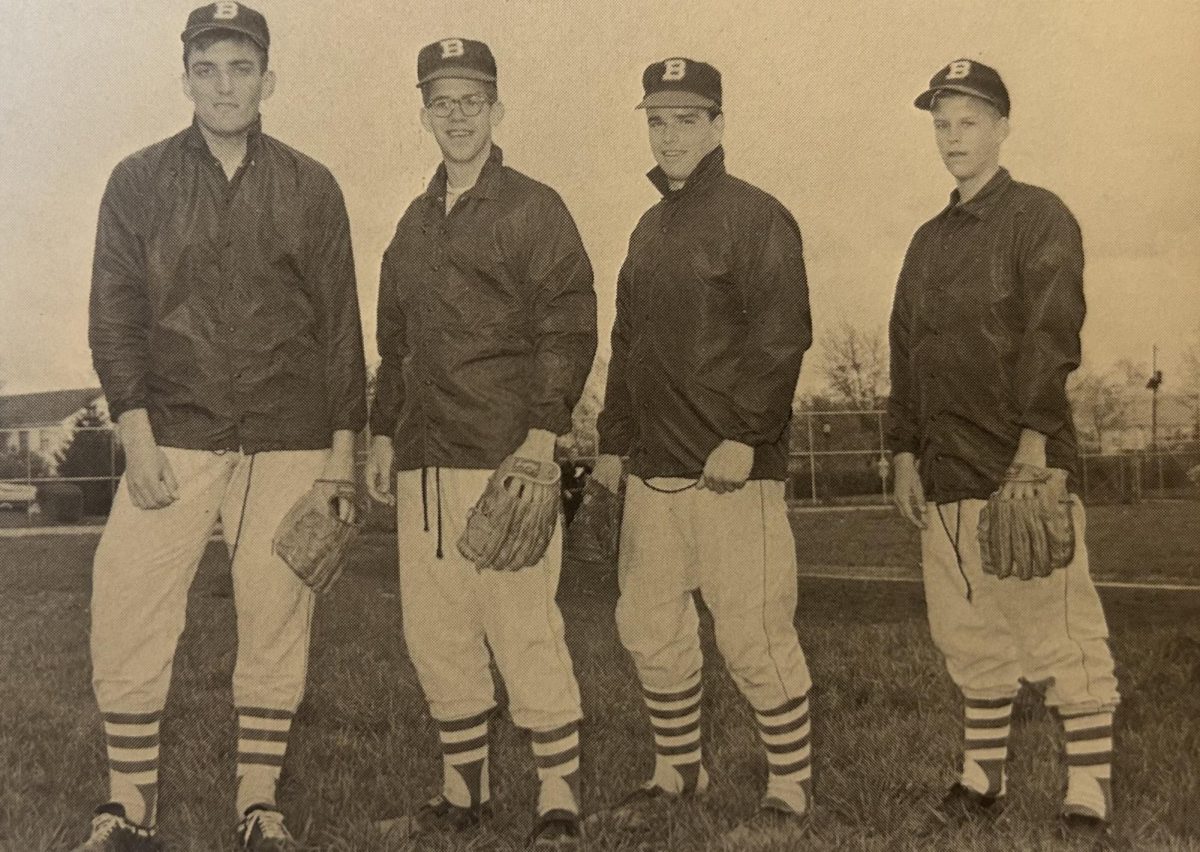
Any given family is bound to have a diverse array of personalities. While one child comes home from lacrosse practice, the other is leaving for their play rehearsal. One backpack is filled with protein bars, and the other is occupied by scripts. A look inside of each child’s backpack is different, yet one thing remains constant: their school-issued Chromebook.
The Pitts family is one who finds the presence of Chromebooks to be especially important, fifth grader Phinn Pitts said. He said the school-issued Chromebooks allow the kids in their family to each have their own device.
“We used to have an iPad, but they all broke because there are five kids in our family, so there’s a lot of breaking stuff,” he said.
Parent Ashley Pitts said that school-issued laptops are an improvement for their family.
“We enjoy the flexibility that laptops provide for movement around and outside our house to complete schoolwork,” she said.
Seventh grader Tucker Pitts said his Chromebook allows him to complete homework and unfinished assignments from the school day.
“I have my phone, but other than that I don’t have any computer at home that I can use,” he said.
Tucker said he spends at least 20 minutes in each class on his Chromebook. The majority of his homework is online as well, he added.
Phinn’s homework is usually on paper, but his teacher has them spend time in class mostly on the computer, he said.
“She usually says to go to Google Classroom…if there’s a class code, she writes it on the board,” Phinn said.
Junior Henry Pitts said he uses his Chromebook frequently, as it is the only laptop he has. The device provides more studying opportunities, he said.
“I use Quizlet a lot to help me memorize things because I can create flashcards, and then I can do the matching, test-taking or just practice,” Henry said.
Henry said he uses the Chromebook most for Spanish assignments in addition to homework and tests for his government class. His other classes, like math and English, have coursework almost exclusively on paper, he said.
Phinn said his English class is where he utilizes his Chromebook the most.
“If we’re doing paragraphs, it’s way easier to type them instead of handwriting,” he said. “[Handwriting] takes longer and you get more stressed.”
Tucker said Chromebooks make numerous aspects of school easier beyond writing essays, as it is harder to lose track of online assignments compared to paper ones.
“You have more space, you have things to get to quickly; it’s more efficient,” he said.
Chromebooks also make having a substitute teacher easier, as students are able to receive quality instruction even though the teacher is absent, Tucker said.
“It’s easier for us to go on Canvas and click on a link that might bring us to a slideshow with other links to click on to watch videos and fill out Google Docs,” he said.
Though the Pitts family uses their school-issued Chromebooks daily, there are some notable downsides to each individual’s experience with the device, Henry said.
“It doesn’t work half the time,” Henry said. “It has a terrible signal… I’ve had to get it fixed multiple times.”
Tucker said since the Chromebooks are not the most advanced technology, he faces some obstacles while using it. For example, students sometimes cannot download material for other school work due to storage. At times teachers are not aware of this problem, making the issue unsolvable, he said.
Phinn faces issues when the Chromebook blocks websites that are needed for instruction, which can prohibit students from accessing learning material.
“Sometimes they block things that they think are game websites, but they’re not,” he said. “There are things we need to get onto, but they’re blocked.”
Though there are some challenges with the Chromebook, having the device is overall a beneficial experience for students, Tucker said.
“There are other computers that have more advantages, but the Chromebooks at school are helpful,” he said. “They’re an advantage in school and in general for homework and other things like that.”















